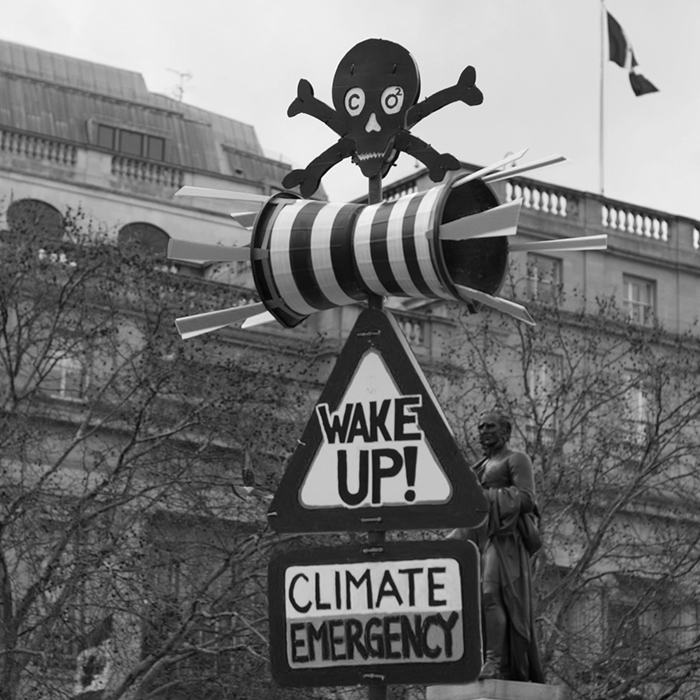“…we’re announcing the commissioning of the renowned Tyndall Centre for Climate Change Research to map the full carbon footprint of typical tour cycles, and to look specifically at the three key areas where CO2 emissions in our sector are generated: band travel and production, audience transport and venue.”
– Robert Del Naja, op-ed for The Guardian
As the climate emergency our planet faces rages on, with the symptoms of our destructive actions becoming more and more prominent and dangerous in every area of our lives; it’s evident we need to change our behaviour, and we need to change it now.
In the music industry, artists are faced with many difficult dilemmas; one of which involves the extremely damaging effects that stem from going on tour. Although the aviation industry alone contributes to 2% of carbon emissions and as of 2019, has consumed almost 100 billion gallons of fossil fuels globally; it isn’t the only issue; as many aspects of touring contribute to the destruction of the environment.
Robert Del Naja, of iconic English band Massive Attack has expanded on, and expressed these notions in a recent op-ed for The Guardian. In a recent move toward environmental protection, the band has commissioned extensive research by the Tyndall Centre For Climate Change Research.
Del Naja expresses the very real concerns of misleading carbon offsetting, as opposed to systemic change in the face of emergency. With the insights provided by the Tyndall Centre for Climate Change Research we can begin to implement real change; because as much as we work to ban single use plastics, recycle or plant trees; these actions are not enough as we are in crisis.
For example, this can be connected to the recycling industry, in which we are made to believe we are assisting in environmental protection more than we actually are – with developed, wealthier countries shipping off their waste to underprivileged communities.
As detailed by Business Insider – the small town of Jenjarom in Malaysia is burdened with as much 19,000 tons of plastic waste littering the town and causing serious health issues for residents. As Del Naja states:
“…the concept of offsetting creates an illusion that high-carbon activities enjoyed by wealthier individuals can continue, by transferring the burden of action and sacrifice to others – generally those in the poorer nations in the southern hemisphere.”
Massive Attack’s commission for Tyndall Centre for Climate Change Research is an incredibly welcomed move; approaching the climate crisis from a realistic and feasible standpoint as opposed to relying solely on carbon offsetting and trendy ‘eco-friendly’ solutions from not only the music industry, but society at large. However, this type of change requires direct, mass action: we need to respond appropriately to what is the worst emergency facing our existence.




